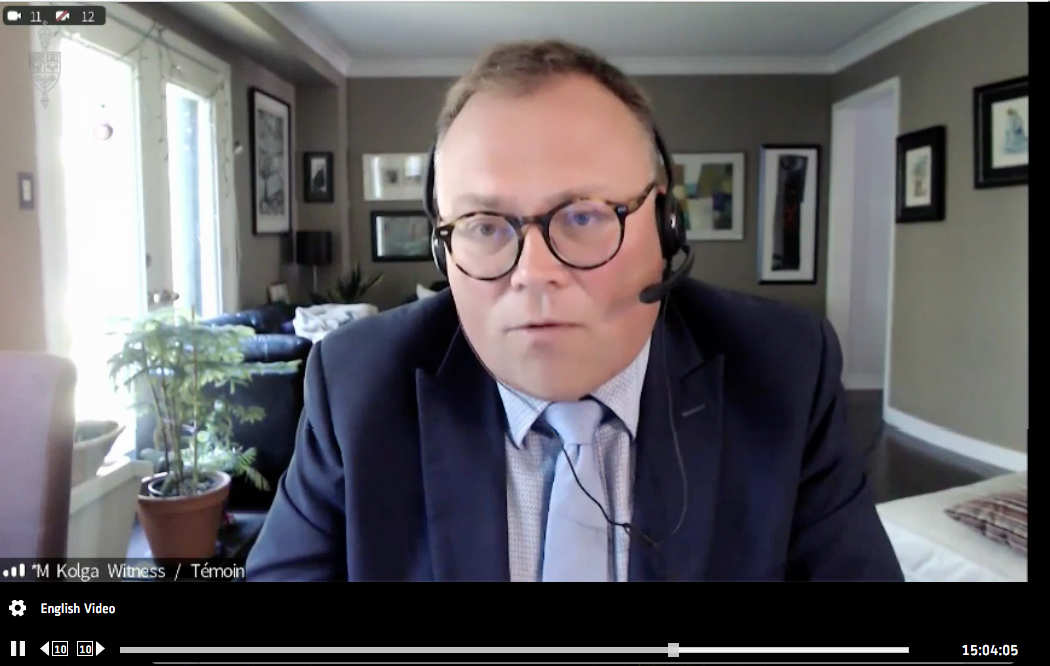Russia’s weaponization of hunger is matched in cruelty by its use of energy to freeze Russia’s neighbours.
Many Europeans experienced this first hand when Russia cut all gas supplies transiting Ukraine in January 2009.
Canadians only recently became aware of Putins’ energy warfare after Global Affairs granted Gazprom a sanctions exemption to permit the repair in Canada of turbines that compress gas exported from Russia through the Nordstream pipeline to Europe.
However, the Kremlin’s use of energy as a point of geopolitical leverage did not emerge out of a vacuum.
The former Vice President of Gazprom Bank, Igor Volobuyev, told a Polish newspaper in May how he was instructed by Gazprom executives to develop anti-Ukrainian narratives already in 2005, when Ukraine’s political trajectory shifted towards Europe.
He also created anti-Georgian narratives in 2008, when Russia invaded South Ossetia and Abkhazia. According to Volobuyev, all decisions within Gazprom are made inside the Russian presidential administration.
If Canada’s decision to grant Gazprom a sanctions waiver was intended to call Putin’s bluff – that mission has been accomplished.
It is now clear that our sanctions did not impair Gazprom’s ability to pump gas through the Nordstream pipeline. As we’ve heard from previous witnesses today: they never were.
Underscoring the false nature of Russia’s accusations was a recent report published by the BBC which exposed massive gas flares at Gazprom’s Portovaya compression station near the Russian starting point of the NordStream pipeline.
Flaring is a process by which gas producers burn off large quantities of gas for sustained periods of time.
According to that report, 10 million dollars of gas are being burned off by Gazprom each day – gas which could otherwise be pumped through Nordstream to Germany and Europe, or through existing pipelines that transit Ukraine and Poland.
Indeed, as other witnesses have pointed out, the Kremlin has now explicitly stated that gas will only start flowing through Nordstream once Canadian and Western sanctions have been lifted. This is blackmail.
Vladimir Putin’s intent is to weaponize gas in order to erode western support for Ukraine and undermine Canadian and allied democracies by blaming us for rising inflation and energy costs through disinformation. This is happening right now.
This morning in Vladivostok, Vladimir Putin doubled down on his accusations about Western sanctions and even claimed “We did not start anything in terms of military action. We are trying to end it.” Putin made it very clear – that the polarization of the democratic world that his regime is actively contributing to, will greatly benefit Russia.
We are currently witnessing Russian state media and pro-authoritarian groups promote these exact narratives. Protests that were organized by Kremlin-aligned communists and populist neo-fascists in Europe this past weekend will be exploited by Russian propagandists to build on them, and destabilize Western democracies. We cannot rule out, that these false narratives will not inspire similar protests among Canadian far-right and far-left extremist groups. In Putin’s own words – the sole beneficiary of this polarization is his regime.
Now that Putin’s bluff has been called, the sanctions waiver issued by Global Affairs should be revoked and the integrity of Canada’s sanctions regime should be restored. Sanctions work when they are applied, sustained and enforced.
Finally, Canada should prioritize the development of infrastructure to export Canadian gas to Europe – as many of our allies have asked us to do.
Canadian small nuclear reactor technology can also help our allies take control of their own supply of electricity. In fact, Estonia recently signed an agreement to do just that. Canada can provide a mutually beneficial contribution to European energy security that will lead to greater overall European stability – if we only commit to it.




